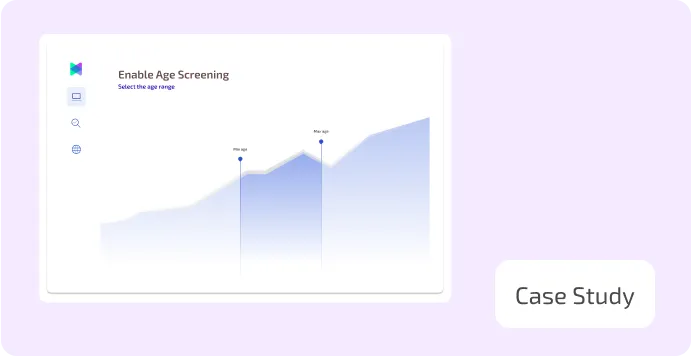.webp)
Published on
September 28, 2025
Your In-Depth Guide to FATF’s Grey List and Black List - June 2025
In this story

Accelerate AML Compliance: Meet Regulatory Demands with 80% Less Setup Time
.svg)
.svg)
One of the key organizations leading this fight against money laundering is the Financial Action Task Force (FATF). Created in 1989 by the G7, FATF develops international standards that help countries build effective anti-money laundering (AML) and counter-terrorist financing (CTF) frameworks.
The FATF evaluates how well countries follow these standards. If a country is found to have major weaknesses in its systems, it may be added to one of FATF’s monitoring lists often referred to as the FATF grey list or the black list. These lists are used by governments, banks, and financial institutions to manage risk when dealing with foreign jurisdictions.
This article explains what the FATF grey list is, how it differs from the blacklist, and why these classifications matter to compliance professionals, especially those in the Middle East and North Africa (MENA) region. You will also learn how financial institutions can protect themselves using effective AML strategies.
Understanding FATF’s Listing System: Grey List vs Black List
The FATF uses two primary tools to pressure countries into improving their anti-money laundering and counter-terrorist financing efforts:
- High-Risk Jurisdictions subject to a Call for Action (commonly referred to as the FATF blacklist)
- Jurisdictions under Increased Monitoring (known as the FATF grey list)
These lists are updated regularly after mutual evaluations and follow-up assessments by FATF. The aim is to protect the global financial system and encourage countries to strengthen their AML/CTF regimes.
The Black List Explained
The FATF blacklist includes countries that show a severe lack of commitment to fighting money laundering and terrorist financing. These nations fail to work with the FATF or refuse to fix the issues identified in their financial systems. Countries on this list face serious consequences including international sanctions, loss of investment, and restrictions on cross-border transactions.
By February 21, 2025, three countries remained on the blacklist:
- North Korea (DPRK)
- Iran
- Myanmar
These nations have ongoing, critical deficiencies in AML/CTF frameworks and show little progress in addressing them. The FATF urges member countries to apply enhanced due diligence and, in severe cases, counter‑measures to limit risks tied to these jurisdictions.
The Grey List Explained
The FATF grey list includes countries that have been found to have shortcomings in their AML/CTF systems but are actively working with FATF to resolve them. These countries commit to time-bound action plans and are monitored closely. While not as severe as the blacklist, grey listing still impacts reputation and can result in increased scrutiny by international banks and investors.
The June 13, 2025 FATF statement lists the following gray list countries (actively engaging and improving):
- Algeria, Angola, Bolivia, Bulgaria, Burkina Faso, Cameroon, Côte d’Ivoire, DR Congo, Haiti, Kenya, Laos, Lebanon, Monaco, Mozambique, Namibia, Nepal, Nigeria, South Africa, South Sudan, Syria, Venezuela, Vietnam, Virgin Islands (UK), Yemen
New additions since February 2025 include Bolivia and Virgin Islands (UK). Meanwhile, Croatia, Mali, and Tanzania were removed from monitoring, indicating successful reforms.
Key Takeaway:
- The FATF grey list includes countries working to fix AML weaknesses, while the blacklist flags nations that are uncooperative and pose high global risk; both have serious implications for financial institutions.
- As of June 2025: only North Korea, Iran, and Myanmar remain on the FATF blacklist, while 24 countries—from Algeria to Yemen—are on the FATF grey list, showing active efforts toward AML improvement.
Comply quickly with local/global regulations with 80% less setup time
.svg)
.svg)
What Being on the FATF Grey List or Blacklist Means for Countries and Financial Institutions
Countries placed on the FATF grey list or blacklist face significant repercussions that affect not only their governments but also banks, businesses, and investors operating within or dealing with these jurisdictions.
1. Impact on Countries
- Reputational Damage: Being on the grey list signals that a country’s AML/CTF systems have weaknesses. This can undermine investor confidence and slow down foreign direct investment, affecting economic growth.
- Increased Scrutiny and Conditional Support: International organizations and development banks may attach stricter conditions or increased oversight before granting aid or financial assistance.
- Economic and Financial Restrictions: Blacklisted countries often face sanctions, restrictions on cross-border financial transactions, and limits on correspondent banking relationships, which severely restrict their ability to engage globally.
2. Implications for Financial Institutions
Banks and other financial institutions must conduct enhanced due diligence when dealing with clients or transactions linked to grey-listed or blacklisted countries. For AML professionals and fraud investigators, this means:
- Heightened Monitoring: Transactions involving these jurisdictions require closer scrutiny to detect suspicious activities or money laundering.
- Regulatory Expectations: Compliance teams must ensure their AML programs incorporate country risk assessments aligned with FATF’s lists.
- Operational Challenges: Increased compliance burdens, such as detailed documentation and approvals, can slow down onboarding and transactions related to these countries.
3. Focus on the MENA Region
- Several MENA countries, including the United Arab Emirates (UAE) and Lebanon, have appeared on the FATF grey list at various times. This creates pressure on regional financial institutions to strengthen AML controls and maintain international trust.
- The UAE, a major financial hub, has accelerated reforms to be removed from the grey list, reflecting the region’s growing commitment to AML standards.
- Lebanon’s inclusion highlights challenges linked to political instability and financial sector vulnerabilities, making compliance efforts critical to safeguarding the economy.
Key Takeaway:
- Countries on the FATF grey or black lists face reputational and economic challenges, while banks must implement strict AML controls. For the MENA region, this means urgent reforms and robust compliance to stay globally connected and trusted.
Distinguishing the FATF Grey List from the Blacklist
Understanding the distinction between the FATF grey list and blacklist helps compliance teams apply appropriate due diligence and monitoring. Efficient screening processes must adapt to reduce “grey compliance spam” while maintaining vigilance.
The term “grey compliance spam” refers to the operational burden caused by an excessive number of alerts and false positives from screening against grey listed jurisdictions. AML teams must balance thoroughness with efficiency by:
- Refining risk-based approaches
- Utilizing advanced screening technology
- Focusing on meaningful alerts rather than volume
FATF Grey List vs. the Blacklist
- Blacklisted countries are deemed extremely high-risk due to persistent failures in AML/CTF controls and poor cooperation with FATF.
Grey listed countries have deficiencies but show commitment to corrective actions, representing a medium to high risk depending on progress.
- Enhanced due diligence (EDD) is mandatory for transactions involving blacklisted jurisdictions.
For grey listed countries, EDD is strongly recommended and often necessary depending on the institution’s risk appetite and regulatory environment.
- Blacklisted countries may face sanctions and restrictions affecting correspondent banking, trade, and investment flows.
Grey list countries face monitoring and pressure but usually do not have sanctions imposed.
- Financial institutions use the FATF lists as part of their customer and transaction screening to:
- Identify high-risk jurisdictions: Automated systems flag clients, counterparties, or transactions linked to grey or blacklisted countries.
- Trigger enhanced monitoring: For flagged entities, additional investigation and approval steps are incorporated before onboarding or processing transactions.
- Update risk assessments regularly: Given that FATF updates its lists frequently, AML teams must ensure screening tools are synchronized to reflect the latest status.
FATF Listing and Delisting: How Countries Get on or off the Grey and Black Lists
Being placed on the FATF grey list or blacklist is not arbitrary—it follows a structured and transparent process.
How FATF Decides to Greylist or Blacklist a Country
FATF uses a multi-phase process to assess a country’s AML/CTF regime. Here's how it works:
- Mutual Evaluation Reports (MERs): Every member country is periodically reviewed by FATF or its regional bodies. The MER evaluates the country's technical compliance with FATF’s 40 Recommendations and the effectiveness of its AML/CFT framework.
- Identifying Strategic Deficiencies: If major gaps are found especially in areas like supervision, law enforcement, asset recovery, or beneficial ownership transparency the country is flagged for closer review.
- Action Plans and Timelines: Grey listed countries agree to action plans and timelines to address deficiencies. The FATF monitors implementation through regular reporting and follow-ups.
- Blacklist Criteria: If a country refuses to cooperate or shows no willingness to improve, and poses a global financial threat, FATF places it on the blacklist. This triggers calls for counter-measures from the global financial system.
How Countries Are Removed from the Lists
To be removed from the grey list, a country must:
- Complete its FATF action plan within the agreed timeline.
- Demonstrate sustained implementation through law enforcement actions, improved supervision, and effective prosecutions.
- Pass a successful on-site visit by FATF assessors. For example:
- Senegal was removed from the grey list in 2025 after completing its action plan
- UAE exited the list in early 2024 by implementing stricter AML oversight and reforms in corporate transparency.
Key Takeaway
FATF listings follow a structured evaluation process. Institutions must monitor these updates in real time to adjust their AML risk models and maintain regulatory compliance, especially for jurisdictions with strategic links to MENA markets.
Compliance Strategies for FATF-Listed Jurisdictions
Financial institutions exposed to FATF grey list or blacklisted countries must implement practical AML measures to manage risks associated with greylisted and blacklisted countries.
1. Risk-Based Customer Due Diligence (CDD)
- Enhanced Due Diligence (EDD): Apply EDD to clients and counterparties linked to blacklisted or greylisted jurisdictions. This includes collecting more granular information on source of funds, beneficial ownership, and transaction purpose.
- Dynamic Risk Scoring: Incorporate up-to-date FATF grey list and blacklist data into your risk models to reflect geopolitical and regulatory changes.
2. Transaction Monitoring & Screening
- Geographic Risk Flags: Integrate country risk filters into transaction monitoring systems to flag unusual activity involving high-risk jurisdictions.
- Sanctions Integration: Combine FATF status with OFAC/EU/UN sanctions to create comprehensive watchlist filters. FATF blacklist countries like Iran and North Korea often overlap with sanctions regimes.
3. Third-Party and Correspondent Risk Management
- KYC on Correspondent Banks: Perform due diligence on correspondents with ties to high-risk jurisdictions—especially where indirect exposure to grey list countries may exist through trade finance or remittances.
- Supplier & Vendor Screening: Extend AML risk assessments to non-client third parties such as vendors and service providers.
4. Real-Time Regulatory Watch
- Regulatory Feeds & Alerts: Set up alerts for FATF publications and advisories so compliance teams are notified when a country is added or removed from the lists.
- Internal Policy Updates: Update internal manuals, onboarding procedures, and escalation matrices in line with FATF grey list movements and blacklisting events.
5. Staff Training and Awareness
- Train relationship managers, frontline staff, and operations teams on the implications of transacting with greylist vs blacklist countries.
- Use case studies and typologies relevant to the MENA region (e.g., trade-based money laundering or hawala networks) for scenario-based training.
6. Technology & RegTech Adoption Deploy AI-powered tools for:
- Behavioral transaction analysis
- Risk-based CDD automation (Ensure your solutions cover gray list countries and grey compliance spam risks (i.e., false positives and systemic exposure to monitored jurisdictions).
Achieve AML Compliance in MENA with FOCAL
Achieve robust AML compliance in the MENA region with FOCAL’s advanced AI-powered solutions. FOCAL helps financial institutions automate transaction monitoring, enhance risk assessment, and ensure timely detection of suspicious activities linked to FATF grey list and blacklist jurisdictions. By integrating cutting-edge technology tailored for regional regulatory requirements, FOCAL empowers AML teams to reduce false positives, streamline compliance workflows, and stay ahead of evolving money laundering threats.
Frequently Asked Questions About FATF Grey List and Blacklist
Q1. What happens if a country is on the grey list?
If a country is on the FATF grey list, financial institutions and investors see it as higher risk. This means:
- More checks and paperwork when dealing with businesses or banks in that country.
- Possible loss of business or higher costs to comply.
- The country has a deadline to improve or face stronger measures.
Q2. What is the difference between grey list and blacklist?
Q3. Are grey list countries considered high risk?
Yes. Grey list countries are high risk but less risky than blacklisted ones.
Q4. Are blacklist countries considered high risk?
Definitely. Blacklisted countries carry the highest risk and are often avoided by banks and financial institutions due to strict sanctions and reputational damage.
Q5. How many countries are members of FATF?
FATF has 40 members worldwide, including most major economies and regional bodies. It also works with regional organizations to expand its reach.
Q6. Is Russia on the FATF blacklist?
No, Russia is not on the FATF blacklist as of 2025. However, its membership has been suspended, and it faces increasing scrutiny.
Q7. How many countries are on the FATF grey list in 2025?
There are 23 countries on the FATF grey list in 2025.
Streamline Compliance: Achieve 80% Faster Setup for Fraud Prevention
.svg)
.svg)

How Aseel reduced onboarding time by more than 87% using FOCAL
Learn how FOCAL empowered Aseel to achieve new milestones.
.svg)
.svg)
Mastering Fraud Prevention: A Comprehensive Guide for KSA and MENA Businesses
51% of organizations fell victim to fraud in the last two years, don't be caught off guard, act proactively.
.svg)
.svg)
Featured blog posts
.svg)
AI-Driven Precision in Fraud Risk and AML Compliance
.svg)
.svg)

.svg)
.png)






.webp)

.png)


.svg)

_FastestImplementation_Small-Business_GoLiveTime.png)

_HighPerformer_Small-Business_HighPerformer.png)
_Leader_Leader.png)



%20(1).webp)